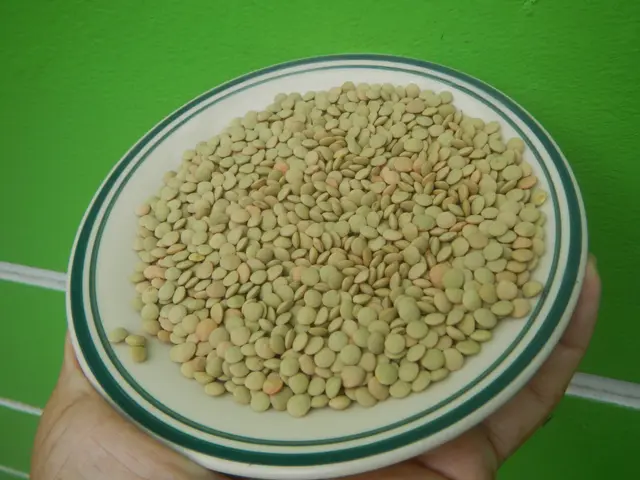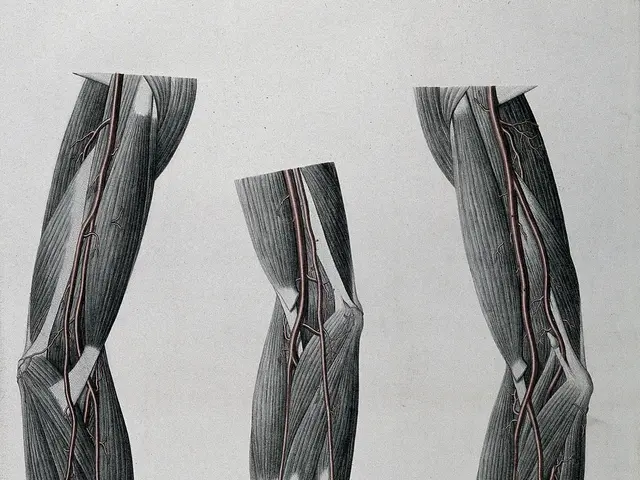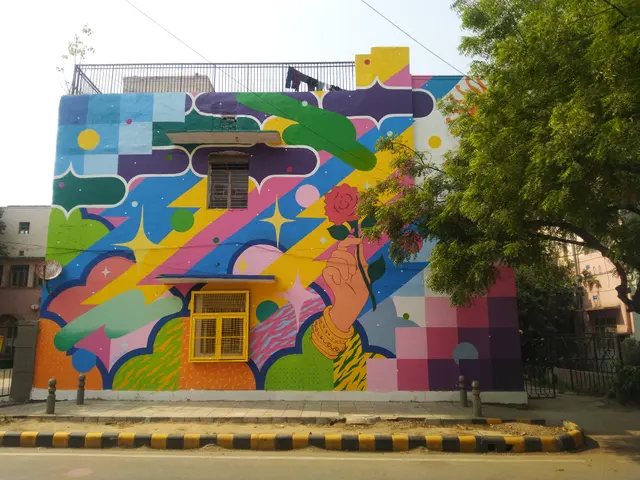Six edibles that promote sleeplessness
In the pursuit of a good night's sleep, it's not just about creating a comfortable sleep environment. The food we consume can significantly impact our sleep quality as well. Here's a breakdown of some foods and beverages that may disrupt your sleep and what you can do to avoid them.
Caffeine
Caffeine, found in coffee, tea, energy drinks, and certain medications, increases wakefulness and arousals. Some individuals may be more sensitive to its effects, leading to restlessness, insomnia, and anxiety. The Food and Drug Administration (FDA) recommends that healthy adults limit their caffeine consumption to less than 400 milligrams per day, the equivalent of 4-5 cups of coffee.
High Glycemic (GI) Foods
High GI foods, such as white rice, potatoes, candy, and other sugary foods, can negatively impact sleep due to their effect on tryptophan and serotonin levels, and their complex interaction with insulin, adrenalin, cortisol, glucagon, and growth hormone. Consuming high GI foods can contribute to insomnia, increase inflammation in the body, and alter intestinal bacteria.
Sugary and High-Carbohydrate Foods
Foods like candy, sugary cereals, white bread, and pasta cause rapid blood sugar spikes followed by crashes, which can interfere with restful sleep and induce awakenings.
Fatty, Spicy, and Acidic Foods
These can cause acid reflux, indigestion, or heartburn, especially if consumed close to bedtime. Spicy foods may also increase body temperature, making falling asleep harder.
Large Portions of Red Meat or Protein-Rich Meals
These take longer to digest, creating discomfort that disrupts smooth sleep onset.
Highly Processed Foods
Fast food and packaged snacks often contain sugar and unhealthy fats linked to poorer sleep quality.
Alcohol
While alcohol may initially promote sleepiness, it reduces overall sleep quality and decreases deep sleep stages. Alcohol can cause early waking and difficulty returning to sleep.
Excessive Liquids Before Bed
Drinking lots of fluids late can cause nighttime awakenings due to the need to urinate.
In summary, avoiding heavy, spicy, fatty, sugary, and highly processed foods close to bedtime is advised to improve sleep quality, alongside limiting caffeine intake. A good night's sleep is essential for maintaining overall health and well-being. Many adults in Australia and the United States do not get the required 7-9 hours, highlighting the importance of making conscious dietary choices to improve sleep quality.
References: [1] National Sleep Foundation. (2015). The Link Between Diet and Sleep. Retrieved from https://www.sleepfoundation.org/articles/the-link-between-diet-and-sleep [2] American Academy of Sleep Medicine. (2018). What You Eat and Drink Can Affect Your Sleep. Retrieved from https://www.sleepeducation.org/sleep-topics/what-you-eat-and-drink-can-affect-your-sleep [3] Harvard Health Publishing. (2018). Sleep Disorders: Diet and Nutrition. Retrieved from https://www.health.harvard.edu/staying-healthy/sleep-disorders-diet-and-nutrition [4] Centers for Disease Control and Prevention. (2019). Data and Statistics About Sleep. Retrieved from https://www.cdc.gov/sleep/data_statistics.html [5] National Heart, Lung, and Blood Institute. (2019). Sleep Disorders: What You Need to Know. Retrieved from https://www.nhlbi.nih.gov/health-topics/sleep-disorders
- Consuming caffeine found in coffee, tea, energy drinks, and certain medications can increase wakefulness and lead to insomnia and anxiety, as it increases arousals. The FDA recommends limiting caffeine intake to less than 400 milligrams per day.
- High GI foods like white rice, potatoes, candy, and other sugary foods negatively impact sleep due to their effect on tryptophan and serotonin levels, and their complex interaction with various hormones. Consuming these foods can cause insomnia and increase inflammation in the body.
- Sugary and high-carbohydrate foods such as candy, sugary cereals, white bread, and pasta can interfere with restful sleep and induce awakenings due to rapid blood sugar spikes followed by crashes.
- Fatty, spicy, and acidic foods can cause acid reflux, indigestion, or heartburn, making falling asleep harder, especially if consumed close to bedtime.
- Large portions of red meat or protein-rich meals take longer to digest, creating discomfort that disrupts smooth sleep onset.
- Alcohol may initially promote sleepiness but reduces overall sleep quality and decreases deep sleep stages, causing early waking and difficulty returning to sleep. Additionally, drinking large amounts of fluids before bed can cause nighttime awakenings due to the need to urinate.







